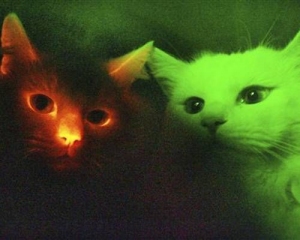
Feline immunodeficiency virus is disease that affects a cat’s immune system that currently has no cure. The immune system is a natural defence against diseases and infections and when FIV is contracted by a cat, it decreases their ability to fight illness. Once a cat has caught the FIV virus, it may then develop into feline immunodeficiency and acts very similarly to the human virus.
It is important to note that FIV is not transmittable to humans.
It is usually transmitted from cat to cat by bites from the infected host through their saliva. If your cat has ever been outside, fought with another cat, has had an abscess or if you are aware of stray cats in your area, it might be time to organise an FIV test and vaccination. Cats may show a range of symptoms over time if infected with the FIV virus including weight loss, poor coat condition, gastroenteritis, diarrhoea, chronic/recurrent infections of the skin, eyes, urinary tract, respiratory tract etc.
An FIV test can be completed at your clinic if your cat has not previously been given a vaccination for FIV. If you are unsure of previous vaccinations, a blood sample can be collected for testing to determine whether the cat has antibodies or FIV DNA in their system.
Routine annual vaccinations cover feline enteritis, feline respiratory disease (cat flu), Chlamydia and feline leukaemia. The FIV vaccination is optional though highly recommended to prevent any possibility of the cat contracting the disease.
Vaccination protocols for kittens can now include vaccinations for FIV.
It is also common for cats to have a bit of a reaction to their vaccination but should recover and be back to normal within 24-48hrs. If you find that your pet is still unwell after this period, it is advisable to have him/her checked by the veterinarian.
If you find you have multiple cats in the household with only one pet diagnosed with FIV, it is highly recommended that any other cats in the home are vaccinated against FIV. Positive diagnosed cats should not roam outside and should also be provided with separate food and water bowls from other cats due to the high amount of the virus present in saliva.
Unfortunately, once contracted this disease is one that will stay with the cat for life. There is currently no cure or treatment so the best protection is prevention.
For those cats that already have a positive diagnosis, it is important to keep up with routine annual vaccines, regular worming schedules and maintaining good health.


